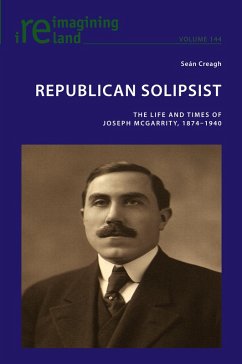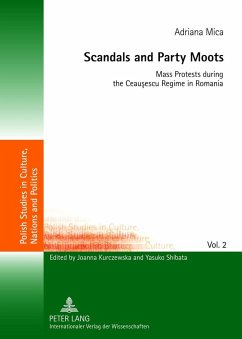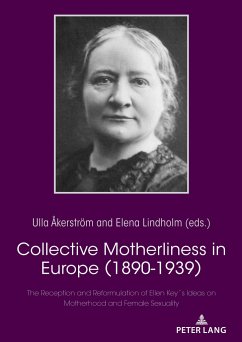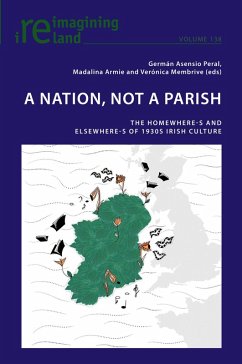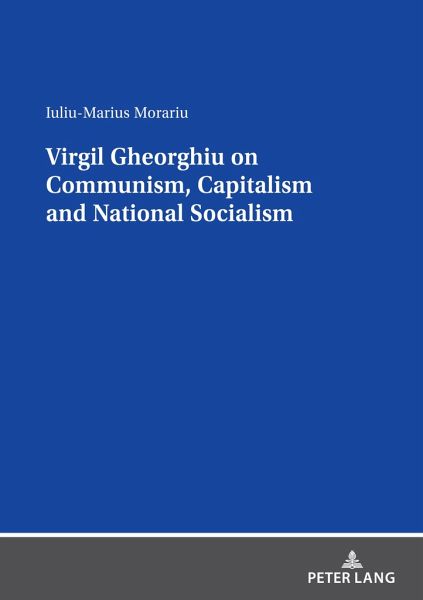
Virgil Gheorghiu on Communism, Capitalism and National Socialism
Versandkostenfrei!
Versandfertig in 6-10 Tagen
61,60 €
inkl. MwSt.

PAYBACK Punkte
0 °P sammeln!
"Iuliu-Marius Morariu succeeds in opening the door of our curious gaze on memorialism, letting us get acquainted with the ideas promoted by Virgil Gheorghiu - an interwar diplomat, journalist, poet, novelist and Romanian Orthodox priest, who had to choose the path of exile (moving to France) once with the establishment of the Communist Regime in Romania." (Iulia Medveschi, in Astra Salvensis, X (2022), no. 19).Virgil Gheorghiu, an important but controversial figure in Romanian exile literature, remains one of his country's best-known writers today. Based on his works and their reception, but a...
"Iuliu-Marius Morariu succeeds in opening the door of our curious gaze on memorialism, letting us get acquainted with the ideas promoted by Virgil Gheorghiu - an interwar diplomat, journalist, poet, novelist and Romanian Orthodox priest, who had to choose the path of exile (moving to France) once with the establishment of the Communist Regime in Romania." (Iulia Medveschi, in Astra Salvensis, X (2022), no. 19).
Virgil Gheorghiu, an important but controversial figure in Romanian exile literature, remains one of his country's best-known writers today. Based on his works and their reception, but also on the existing secondary literature, this study examines his reflection on three important ideologies, namely communism, national socialism and capitalism, in order to highlight the specificities of Virgil Gheorghiu's thought and to see what aspects of topicality and contemporary relevance can be found in it.
Virgil Gheorghiu, an important but controversial figure in Romanian exile literature, remains one of his country's best-known writers today. Based on his works and their reception, but also on the existing secondary literature, this study examines his reflection on three important ideologies, namely communism, national socialism and capitalism, in order to highlight the specificities of Virgil Gheorghiu's thought and to see what aspects of topicality and contemporary relevance can be found in it.




